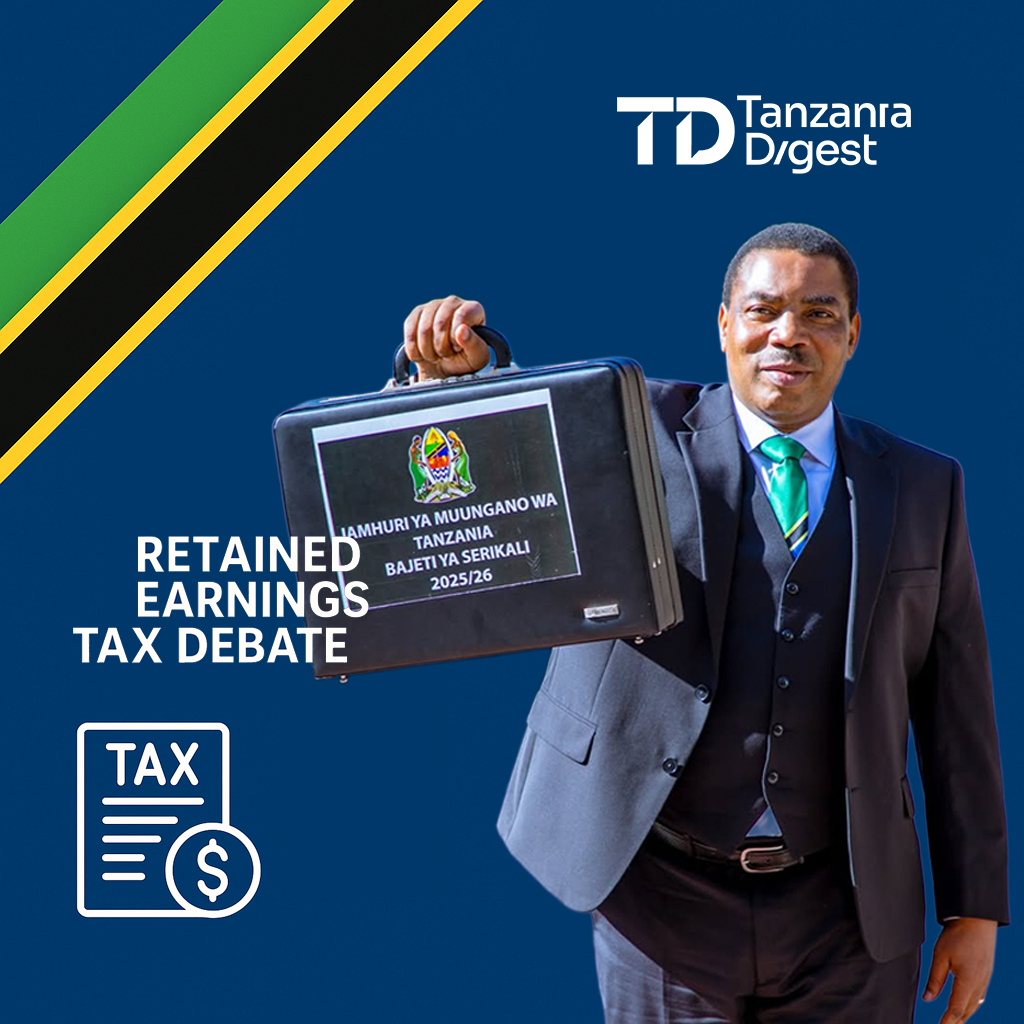Who pays, who grows, and who decides?
In a country striving to balance economic growth with social justice, taxation is never just about numbers. A recent heated exchange between Zitto Kabwe, Finance Minister Mwigulu Nchemba, and Prof. Anna Tibaijuka on X (formerly Twitter) has ignited public debate about a deceptively technical question: Should Tanzania impose a 10% withholding tax on retained earnings?
The proposal, found buried in the 2025/26 government budget, seeks to tax profits that companies choose to reinvest rather than distribute as dividends. But the political and economic implications go much deeper.
“This is WRONG. It is a double taxation on the same income.”
— Zitto Kabwe, Former MP
Kabwe’s argument hinges on the classic corporate tax principle: companies already pay 30% tax on their profits. If the remaining 70% is reinvested (retained earnings), taxing it again — especially before it’s even paid out as dividends — could stifle growth, particularly for startups and medium enterprises. His concern is not just theoretical. Across Africa, many businesses operate on thin margins, relying on retained earnings to fund expansion and survive economic shocks.
Yet Finance Minister Nchemba is not convinced.
“WHT on retained earnings is not double taxation. It is an anti-avoidance rule… dividends are taxed, while retained earnings are not.”
— Mwigulu Nchemba, Finance Minister
His defense hinges on tax fairness. Why should shareholders who receive dividends be taxed, while others who reinvest through retained earnings are exempt? The move, he says, closes a loophole — ensuring all profits are eventually taxed, whether distributed or retained.
But Prof. Anna Tibaijuka, a former UN Under-Secretary-General and respected economist, finds fault not in the legality but in the policy’s impact.
“Sera ina ukakasi… inalenga walipakodi walewale ndani ya kampuni yao. Ni high au excessive taxation.”
— Prof. Anna Tibaijuka
Tibaijuka’s critique is policy-focused: while technically not “double taxation,” the tax burdens the same economic actors — shareholders and SMEs — repeatedly. She warns that such a move may reduce investment incentives, pressure companies to prematurely distribute profits, and disproportionately harm youth- and women-owned SMEs. It could also send the wrong signal to both domestic and foreign investors.
Global Context: A Trend Worth Copying or Avoiding?
Globally, few countries tax retained earnings directly. The U.S., for instance, taxes corporate income at the company level and only taxes shareholders when dividends are paid — known as the “classical system”. Some jurisdictions (like India in the past) attempted similar taxes but repealed them due to their negative effect on reinvestment.
Closer to home, Kenya and South Africa do not levy withholding tax on retained earnings either. Instead, they focus on dividend taxation and capital gains, preserving retained earnings as a tool for capital growth — crucial for emerging economies.
Who Is Right?
All sides raise valid points.
- Kabwe’s fear of discouraging reinvestment is not exaggerated. SMEs often reinvest earnings to build capacity — a second tax on that may slow down Tanzania’s ambitions for industrialization.
- Nchemba’s argument for fairness has merit — companies shouldn’t use retained earnings to perpetually avoid shareholder taxation.
- Tibaijuka’s voice bridges the two — acknowledging the legal basis, but warning of real-world damage.
Rather than a question of right or wrong, the issue is one of balance.
Can Tanzania broaden its tax base without crippling the very engine of its economic transformation?
A Better Path?
Perhaps the solution lies in delayed or conditional taxation — such as taxing retained earnings only after a much longer period or only when profits are not reinvested. Alternatively, exempting SMEs and startups for a defined period could nurture growth while still holding large corporates accountable.
At its core, this is a debate about vision: do we want to tax more today or build more tomorrow?
As Prof. Tibaijuka aptly noted:
“Sera nzuri ya kodi lazima ilee ukuaji wa mtaji wa biashara na uzalishaji.”
A good tax policy must nurture growth — not just collect from it.

